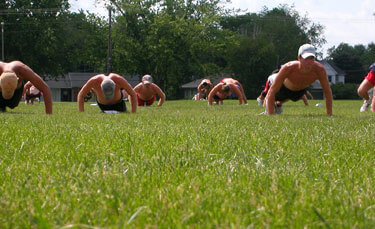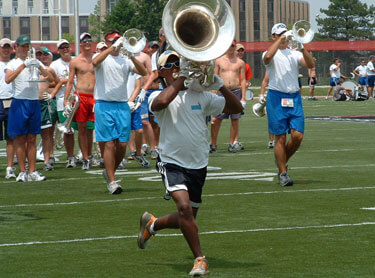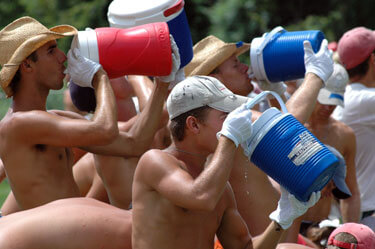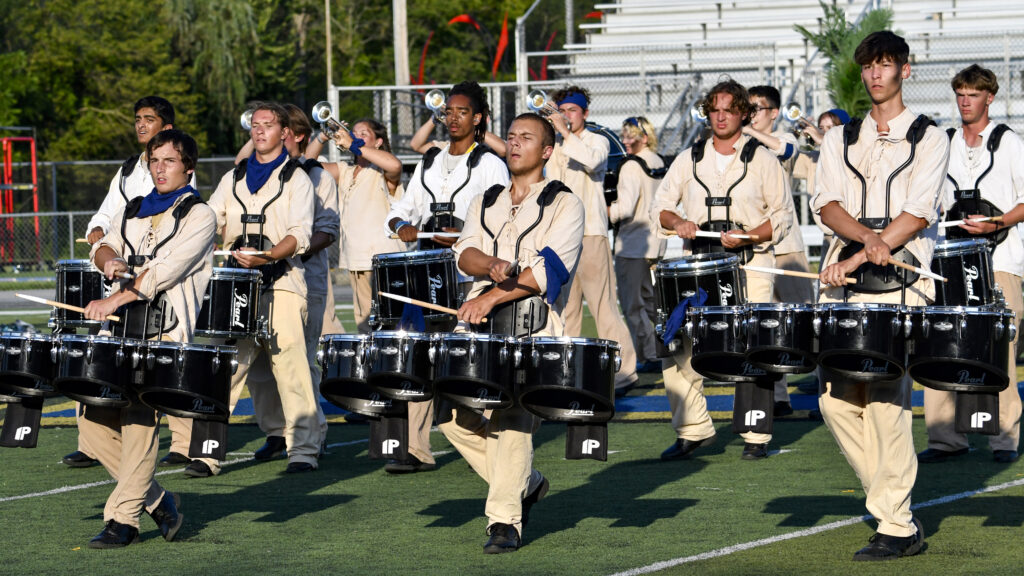

You may never have thought that better balance and core stability can help you play better. Well, it’s true. When you start to develop better core stability, your body learns the means to effectively hold itself in a better postural position. As you achieve core stability and improved posture, your diaphragm is allowed to open up giving you the ability to project more. The end result? A much bigger sound.
3. Strength and conditioning

Strength and conditioning is integrated into athletic programs at all levels. Even smaller high school football programs have a weight room where athletes train. Strength and conditioning is just as vital for marching musicians to help increase endurance and stamina in the specific muscles used while marching and playing. This helps prepare your body for long days of drum corps rehearsal and the competitive marching band season.
3. Cardiovascular training

Cardiovascular training can be accomplished in several ways. You can run, cycle, swim or participate in other traditional cardiovascular exercises, however, there is another method of cardiovascular training you can use that is even more specific to marching music. When participating in a strength and conditioning program, especially one that is specific to marching music, you can use the program to get a cardiovascular workout. Each exercise should be given appropriate attention to complete, and when you are finished with that exercise, you should immediately move onto the next one. By working through the program intensely, it will keep your heart rate up and give you a specific cardiovascular training benefit.
5. Hydration

It is extremely important that you make a conscious effort to hydrate yourself. This is true at any level and whether you are playing your instrument or participating in a strength and conditioning program. Sports drinks are fine to substitute lost nutrients from exertion, but you should take note to always drink plenty of water.
Learn about products and educational materials offered by Drum Corps International and the Institute of Health and Human Performance that can help get you on your way to preventing injuries, enhancing performance and following a healthy lifestyle. Consult a physician before beginning any exercise program.





